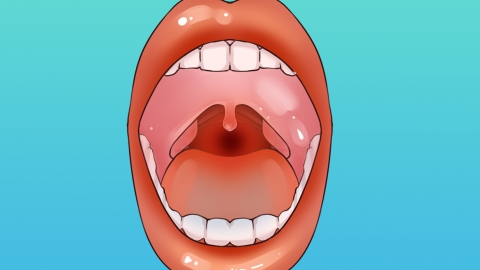What medication should I take for an itchy throat?
In general, a ticklish throat refers to pharyngeal pruritus, which may be caused by poor environmental conditions, excessive voice use, laryngitis, reflux esophagitis, chronic pharyngitis, and other factors. It is recommended to seek timely medical advice and use medications such as Amoxicillin Capsules, Huang's Voice-promoting Pills, Domperidone Tablets, Pudilan Anti-inflammatory Oral Liquid, and Pharyngitis Tablets under a doctor's guidance. A detailed explanation is as follows:

1. Poor Environmental Conditions
Dry air, dust, smoke, and irritating gases may irritate the throat mucosa, causing pharyngeal pruritus. Medication is generally not required. It is recommended to maintain humid indoor air, using a humidifier if necessary. In environments with severe air pollution or numerous allergens, wearing a mask can reduce the inhalation of irritants.
2. Excessive Voice Use
Prolonged loud talking, singing, or shouting can fatigue the throat muscles and damage the vocal cords, leading to mucosal congestion and dryness in the throat, which causes pharyngeal pruritus. Medication is generally unnecessary, but it is important to use the voice appropriately, avoid prolonged continuous talking or shouting, take regular breaks, and drink water as needed to soothe the throat.
3. Laryngitis
Laryngitis may be triggered by infections or inhalation of harmful gases. Inflammatory reactions in the laryngeal mucosa may cause congestion and swelling, stimulating sensory nerves in the throat and resulting in pharyngeal pruritus, often accompanied by symptoms such as hoarseness and coughing. Patients may use medications like Amoxicillin Capsules, Huang's Voice-promoting Pills, and Jinlang Voice-opening Pills under a doctor's instructions.
4. Reflux Esophagitis
Reflux esophagitis mainly results from relaxation of the lower esophageal sphincter, causing gastric contents to flow back into the esophagus and even up to the throat. Stomach acid irritates the pharyngeal mucosa, causing pharyngeal pruritus. Patients may also experience heartburn and acid regurgitation. Medications such as Omeprazole Enteric-coated Capsules, Domperidone Tablets, and Hydrotalcite Chewable Tablets may be used under medical guidance.
5. Chronic Pharyngitis
Chronic pharyngitis may be caused by recurrent acute pharyngitis, nasal and sinus diseases, long-term smoking and alcohol consumption, or irritation from harmful gases. Inflammatory stimulation keeps the pharyngeal mucosa in a state of chronic congestion, increasing the sensitivity of nerve endings, which leads to pharyngeal pruritus. Symptoms may also include a foreign body sensation and a burning feeling in the throat. Patients may use medications such as Pudilan Anti-inflammatory Oral Liquid, Pharyngitis Tablets, Guilin Watermelon Frost Lozenges, and others under a doctor's guidance.
In daily life, one should maintain fresh and appropriately humid indoor air, follow a regular作息 routine, avoid staying up late, ensure sufficient sleep to enhance physical immunity, and reduce the likelihood of illness occurrence.






